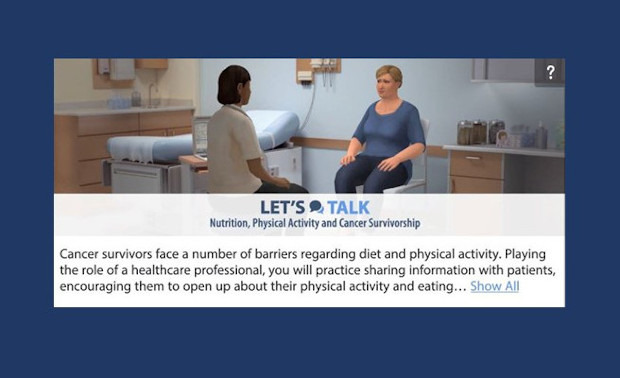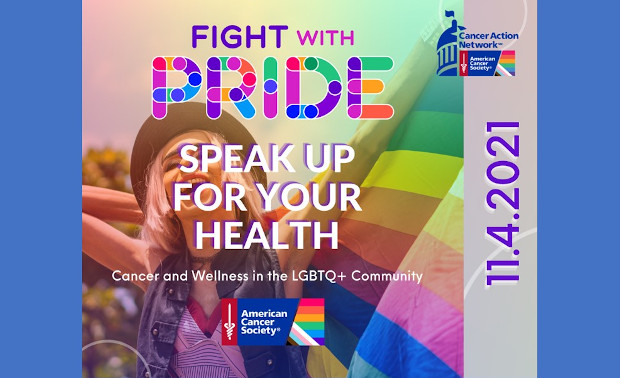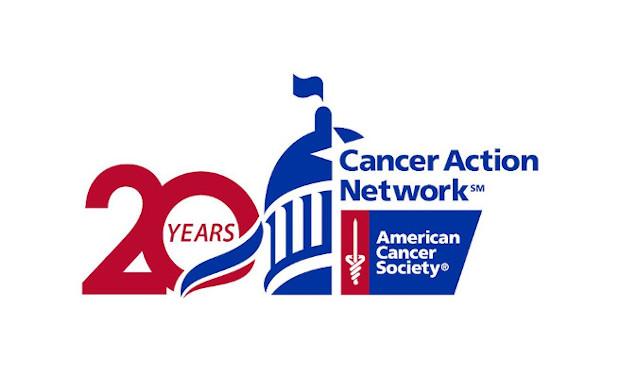Sunday, October 31, 2021
Friday, October 29, 2021
National Cat Day
Sunday, October 24, 2021
You’re invited to the Global Relay For Life Festival!
Registration is now open for the 24-hour virtual Relay For Life celebration.
The American Cancer Society will host the Global Relay For Life Festival in the ACS Virtual Campus powered by Virbela next month. Relayers from around the globe will unite to celebrate, remember, and fight back.
All volunteers are invited to register for the event at Global Relay For Life: Home. The American Cancer Society Campus will be open to all registered participants from November 12 at 6 p.m. GMT (2 p.m. ET) through November 13 at 6 p.m. GMT (2 p.m. ET).
We highly recommend you download the software and create your avatar prior to November 12. Participants will receive instructions once registered for the event.
During the registration process, each participant will choose a country/organization. All funds raised by that individual and their team will go directly to that charity. There is no fundraising requirement to join the Global Relay For Life Festival, however all of our cancer fighting missions depend on funds raised! You can show support by seeking donations and selling luminaria that will be displayed during the Festival.
The Festival will be focused on leveraging the energy that comes from the global nature of this program allowing partners to wrap up 2021 and kickstart 2022.
Activities will include live music, purchase and dedication of luminaria bags, survivorship activities, opportunities to meet others from around the Relay world, interactive tools and games, idea sharing, and lots of fun in this virtual platform. Please note: We are looking for musicians and people to host activities, so if you have someone in your network that would want to help, please connect them to us at globalrelayforlife@cancer.org.
*Shared from MySocietySource.
Saturday, October 23, 2021
Making Strides of Silicon Valley
For more than two decades, Making Strides
Against Breast Cancer has united communities in the fight against this deadly
disease and funded breakthrough research, 24/7 support for breast cancer
patients, and access to lifesaving screenings. Today is Making Strides of Silicon Valley, learn more at cancer.org.
Wednesday, October 20, 2021
International Pronouns Day
International Pronouns Day seeks to make
respecting, sharing, and educating about personal pronouns commonplace.
Learn more about how the American Cancer Society is working with health care providers
to provide them additional information and training to provide cancer care for
transgender and gender nonconforming people at https://www.cancer.org/content/dam/cancer-org/cancer-control/en/booklets-flyers/cancer-care-for-transgender-and-gender-nonconforming-people.pdf.
World Statistics Day History
As the United Nations says, World Statistics Day is about
connecting the world with data we can trust. In 2021 in the U.S., there will be
an estimated 1,898,160 new cancer cases and 608,570 cancer deaths. Learn more
about the American Cancer Society’s
Cancer Statistics Center at cancer.org
Monday, October 18, 2021
ACS study estimates number of cancer cases attributable to physical inactivity
By state, the proportion of cancer cases attributable to physical inactivity ranged from 2.3% in Utah to 3.7% in Kentucky.
A new report finds more than 46,000 cancer cases annually in the U.S. could be prevented if Americans met the 5 hours per week of moderate-intensity recommended physical activity guidelines.

The latest data appearing in the journal Medicine & Science in Sports & Exercise show 3% of all cancer cases in U.S. adults aged 30 years and older during 2013 to 2016 were attributable to physical inactivity. The proportion was higher in women (average annual attributable cases 32,089) compared to men (14,277).
For both men and women, states with the highest proportion of cancers attributable to physical inactivity were in the South: Kentucky, West Virginia, Louisiana, Tennessee, and Mississippi. The lowest proportions were found in the Mountain region and northern states: Utah, Montana, Wyoming, Washington, and Wisconsin.
Led by Adair Minihan, MPH, at the American Cancer Society, this is the first study to estimate the number of cancer cases attributable to physical inactivity based on cancer sites (breast, endometrial, colon, stomach, kidney, esophageal adenocarcinoma, and urinary bladder) by state. Data show that 16.9% of stomach cancers, 11.9% of endometrial cancers, 11.0% of kidney cancers, 9.3% of colon cancers, 8.1% of esophageal cancers, 6.5% of female breast cancers, and 3.9% of urinary bladder cancers were associated with lack of exercise. By state, the proportion of cancer cases attributable to physical inactivity ranged from 2.3% in Utah to 3.7% in Kentucky.
While this data shows the importance of physical activity, there are many barriers to recreational physical activity, including a lack of time due to long working hours in low-wage jobs, the cost of gym memberships or personal equipment, lack of access to a safe environment in which to be active, and potential childcare costs involved with recreational physical activity. Unfortunately, these barriers are more likely to affect historically marginalized populations, including the Black population and individuals with a limited income, underscoring the importance of enhancing health equity.
“These findings underscore the need to encourage physical activity as a means of cancer prevention and implement individual- and community-level interventions that address the various behavioral and socioeconomic barriers to recreational physical activity,” write the authors. “Understanding and reducing the behavioral and socioeconomic barriers to physical activity is essential for optimizing intervention strategies targeting at risk groups across the country.”
*Shared from MySocietySource.
Sunday, October 17, 2021
Let’s Talk: Nutrition, Physical Activity and Cancer Survivorship training extended until Sept. 2022!
Accredited class helps health care workers discuss nutrition and exercise with survivors.
The American Cancer Society, with support from the Center for State, Tribal, Local, and Territorial Support at the Centers for Disease Control and Prevention, has created a CME-accredited training simulation called Let’s Talk: Nutrition, Physical Activity, and Cancer Survivorship.

The simulation gives health care providers a safe learning environment in which to practice effective communication techniques for discussions with cancer survivors around the sensitive topics of healthy eating, physical activity, and body weight.
This CME-accredited training provides personalized feedback on practice conversations so that health care professionals can assess their competency to lead similar conversations in real clinical interviews. The training is approved for .5 CME credits for physicians and physician assistants and .5 CEU credits for nurses and nurse practitioners.
Click here to access the free training. Note that users are asked to create an account.
Why it’s important
Excess body weight is a risk to cancer survivors, and physical activity and a healthy diet are important for their long-term health and well-being. Health care providers can be key motivators in giving patients the extra support they need to achieve their healthy lifestyle goals, however, talking with survivors about these sensitive topics can be challenging.
Where to go for more information
Supporting promotional materials, including sample social media posts, email templates, and newsletter content, are available here.
*Shared from MySocietySource.
Saturday, October 16, 2021
Making Strides Against Breast Cancer of the Bay Area
For more than two decades, Making Strides Against Breast Cancer has united communities in the fight against this deadly disease and funded breakthrough research, 24/7 support for breast cancer patients, and access to lifesaving screenings. Today is Making Strides of Bay Area, learn more at cancer.org.
National Mammography Day
Friday, October 15, 2021
Global Handwashing Day
Thursday, October 14, 2021
Chevrolet #WeDriveFor Campaign is underway!
Since 2011, Chevrolet has proudly supported the American Cancer Society Making Strides program, contributing more than $15 million through activations like the successful #IDriveFor social campaign.
This year, the campaign has evolved to #WeDriveFor, and throughout the month of October, Chevy will donate $5 for every public Instagram post, Twitter post, or RT that includes #WeDriveFor (up to $110,000).
The #WeDriveFor social activation toolkit provides background on the nationwide partnership, sample social content for Twitter and Instagram, and recommendations on how to maximize this fundraising opportunity on social media.
Be sure to check out the #WeDriveFor content on TikTok as well, where donations will also be matched up to $110,000!
*Shared from MySocietySource.
Wednesday, October 13, 2021
Amazon Smile
Tuesday, October 12, 2021
Webinar to help LGBTQ+ people take charge of their health
The Northeast Region's New England LGBTQ+ Strategy Group is hosting a free Nov. 4 webinar called “SPEAK UP for Your Heath: Cancer and Wellness in the LGBTQIA+ Community.”
During this webinar, leaders in the field will share insights to help members of the LGBTQ+ community understand their wellness options and equip them with information to have informed discussions with health care providers. One goal is to provide actionable suggestions for how LGBTQIA+ individuals can be better advocates for their own health and wellness, especially concerning cancer screening, treatment, and survivorship.

“SPEAK UP” is set for Thursday, Nov. 4, at 12:00 noon ET. Read the full details, including confirmed speakers.
Research shows that LGBTIA+ people have a disproportionate burden of cancer. Distinctive risk factors and other barriers to accessing health care mean the LGBTQIA+ community has both greater cancer incidence and later stage diagnosis. What’s more, since no cancer registries or surveys consistently collect data on sexual orientation/gender identity (SOGI), LGBTQIA+ individuals remain hidden in the current health data.
*Shared from MySocietySouce.
Monday, October 11, 2021
Indigenous Peoples Day
National Coming Out Day
National Coming Out Day is an annual LGBTQIA+ awareness day to supporting those choosing to “come out of the closet.” The American Cancer Society is focused on supporting the LGBTQIA+ community by focusing on cancer disparities including providing more information to help improve cancer prevention, diagnosis, and treatment. They are also providing health care workers additional education and support in treating the LGBTQIA+ community. Learn more about the health disparities for the LGBTQIA+ community and more at https://www.cancer.org/research/acs-research-highlights/cancer-health-disparities-research/cancer-health-disparities-acs-research-highlights.html.
Sunday, October 10, 2021
World Mental Health Day
Saturday, October 9, 2021
World Hospice and Palliative Care Day
While Hospice and Palliative Care are often viewed as the same thing, they can be very different depending on the patient and their needs.
Palliative care is focused on improving the quality of life for people living with a serious illness like cancer. People with cancer may receive palliative care at any time from the point of diagnosis, throughout treatment, and beyond. Palliative care helps patients and caregivers manage the symptoms of cancer and side effects of cancer treatment. Learn more about palliative care and information about dealing with the side effects of cancer and cancer treatment at https://www.cancer.org/treatment/treatments-and-side-effects/palliative-care.html.
Hospice care provides compassionate care for people in the
last phases of incurable disease so that they may live as fully and
comfortably as possible. Learn about end of life care including hospice care at
https://www.cancer.org/treatment/end-of-life-care.html.
Friday, October 8, 2021
ACS and four Historically Black Colleges and Universities announce groundbreaking research program
The American Cancer Society (ACS), along with four historically black medical schools including Charles Drew Medical School, Howard University, Meharry Medical College, and Morehouse School of Medicine, today announced a groundbreaking Diversity in Cancer Research (DICR) Program to help improve diversity, equity, and inclusion in the cancer research field. The inaugural initiatives of the overarching program include DICR Institutional Development Grants. The four HBCUs have received DICR grants in a pilot program for 2021-2022.
The awards provided through the DICR program are unique in cancer research. They provide a large amount of salary support for the four colleges to select clinical faculty who need more dedicated time for their cancer research and scholarly activities. They also fund other student and postdoctoral programs and underpin the awards with career development funds and mentorship by established American Cancer Society Professors. The grants will build sustainability for both clinical and scientific cancer-focused careers, launching or sustaining the careers of 104 individuals by 2025.
The impactful program will create a more inclusive research environment to address health disparities more effectively and could lead to targeted recruitment efforts focused on bringing people of color into clinical research protocols. Establishing a research community that is made up of a diverse group of people is vital to ensuring scientific excellence.
“The American Cancer Society is committed to launching the brightest minds into cancer research and to reducing health disparities,” said William Cance, our chief medical and scientific officer. “To accomplish this, we believe it is essential to invest in the minority workforce and their dedicated efforts to solve disparities and establish equity in cancer care.”
“There are many reasons the Black community continues to experience disparities in cancer care outcomes. But one of the most critical factors behind the imbalance, and one of the most promising paths to closing the gap, is diversity in cancer care research. We must improve diversity and representation in our laboratories if we expect different outcomes in our hospitals,” said Wayne A. I. Frederick, MD, president of Howard University. “As a cancer surgeon and as the president of an HBCU, I believe the Diversity in Cancer Research Program will prove to be pivotal in altering the field of cancer care research and improving cancer care outcomes for Black Americans. I am deeply appreciative of the American Cancer Society’s efforts behind this initiative.”
Data show that African Americans and Black people, Hispanics and Latinos, indigenous people, and native Hawaiians and other Pacific Islanders are underrepresented in grant funding. Fewer than 2% of applicants for the National Institute of Health principal grant program come from Black/African Americans, and fewer than 4% from Hispanic/Latino populations.
“We are incredibly excited about this new program with the American Cancer Society,” said James E.K. Hildreth, Ph., MD, president and CEO of Meharry Medical College. “There is a significant imbalance in the representation of minority populations in clinical research which has led to poorer outcomes for specific racial and ethnic minority groups. To eradicate the varying health disparities that affect these populations, we must prioritize diversifying clinical trials and those who conduct trials to ensure treatment is safe and effective. This is a fantastic step to ensuring minority populations receive effective treatment and provides great opportunities for our students and faculty to engage in cancer research.”
“The development of diverse, highly competitive, and independent research faculty has been a goal at CDU since its inception 55 years ago,” shared Dr. David M. Carlisle, president and CEO of Charles R. Drew University of Medicine and Science, located in South Los Angeles. “This generous grant from the American Cancer Society will directly support a range of programs towards that goal, including the Center to Eliminate Cancer Health Disparities as well as our Clinical Research and Career Development Program, which provides training and mentoring in health disparities and community-partnered participatory research to minority scholars and junior faculty at CDU. This funding will undeniably help CDU in forming a solid foundation in social justice for future cancer research leaders.”
ACS has committed to a $12 million investment to support the four HBCU medical schools with DICR institutional development grants to fund a four-year program that aims to increase the pool of minority cancer researchers by identifying talented students and faculty from HBCUs. This program will inform efforts to develop a national program to boost cancer research and career development at minority-serving institutions (MSIs). These grants are designed to build capacity and enhance the competitiveness of faculty at MSIs when applying for nationally competitive grant support and aid in faculty development and retention.
“Here in Georgia, cancer health disparities exist by age, gender, race, income, education, and access to care, among other factors, with Georgia residents in rural communities experiencing worse cancer health outcomes than their urban counterparts,” said Valerie Montgomery Rice, MD, president and CEO at Morehouse School of Medicine. “The DICR program will be a much-needed and welcome contribution to our work at the Morehouse School of Medicine Cancer Health Equity Institute, forever changing the field of cancer research. The program will not only ensure diversity and inclusion in research, but address health disparities in diverse communities, and assist in our mission in leading the creation and advancement of health equity.”
*Shared from MySocietySource.
Thursday, October 7, 2021
Walk to School Day
Wednesday, October 6, 2021
ACS receives million dollar support to expand and accelerate cancer screening initiative
The American Cancer Society (ACS), with the generous support of million-dollar sponsors Genentech, a member of the Roche Group, the National Football League (NFL), Merck (known as MSD outside the United States and Canada), Novartis Oncology and Pfizer Oncology, is spearheading a comprehensive movement to dramatically and swiftly increase cancer screening rates. Additional sponsors for the initiative include AmerisourceBergen, BD (Becton, Dickinson and Company) and Intuitive.
These sponsors have joined ACS in its goal of raising $30 million for a multi-faceted national initiative to ensure access for everyone to recommended cancer screenings and reduce screening disparities. The goals for this work include improving screening rates for breast, cervical, colorectal, and lung cancers and ensuring everyone has access to recommended screenings since screening disparities have increased for people with greater social or economic barriers. Components of the initiative include a national consortium of public health groups and professional organizations, the development and support of state and local coalitions, engagement of health systems to implement evidence-based screening interventions, the launch of a public awareness campaign, dedicated research activities to better understand lessons learned, progress and policy solutions, and a renewed push for known public policy solutions that can benefit all.
Partner support is a key component of the American Cancer Society's overall screening campaign, which aims to not only restore but improve pre-pandemic cancer screening routines and prevent later-stage cancer diagnosis in the wake of the disruptions caused by the COVID-19 pandemic.
"The beginning of the COVID-19 pandemic brought about dramatic declines in screening rates for breast, cervical, colorectal and lung cancers, which means that many cancers could be going undiagnosed and untreated," said Dr. Karen Knudsen, chief executive officer of the American Cancer Society. "As a result, the American Cancer Society foresees that pandemic-related decreases in health care access and cancer screenings will result in a short-term drop in cancer diagnoses and an increase in late-stage diagnoses and potentially preventable deaths. The critical screening initiative supported by our corporate sponsors will significantly increase cancer screening rates and ultimately save lives."
Through the partner-supported screening initiative, ACS will work with local and regional communities, primary care providers, national and local consortia, health care systems and policymakers on increasing access to cancer screening to find and treat cancer and help more people survive cancer.
With the support of corporate partners, the American Cancer Society has launched a public awareness campaign aimed at increasing screening rates. The campaign includes targeting messages and advertising to reach the Hispanic/LatinX population with vital cancer screening information. ACS is also working with individual states to develop action plans around increasing screening rates as well as initiating studies on how COVID-19 has influenced access to care, especially among cancer survivors.
Other initiatives include convening national and regional learning collaborative webinars with health systems to troubleshoot screening challenges and share promising practices and continuing to educate federal and state policymakers on the importance of the National Breast and Cervical Cancer Early Detection Program (NBCCEDP).
*Shared from MySocietySource.
Tuesday, October 5, 2021
World Teachers’ Day
Monday, October 4, 2021
Watch a replay of ACS CAN's Lights of Hope
On Sept 18, the American Cancer Society Cancer Action Network (ACS CAN) celebrated 11 years of Lights of Hope by bringing hope to homes across America. The Lights of Hope Across America virtual event aired on ACS CAN’s Facebook page, honoring those who have been touched by cancer. Watch the replay.
As ACS CAN’s signature fundraising event, Lights of Hope is dedicated to honoring those who have been touched by cancer and remembering those lost. Funds raised through Lights of Hope will help ACS CAN continue to make fighting cancer a national priority. Bristol Myers Squibb is the presenting sponsor.

During the Lights of Hope America program, displays from across the country were highlighted while speakers reflected on them and gave remarks about why fighting cancer needs to be a national priority. The program featured our CEO Karen Knudsen, MBA, PhD; ACS CAN President Lisa Lacasse; ACS CAN Board President Sandy Cassese; ACS CAN volunteers, and members of Congress.
Lights of Hope precedes ACS CAN’s Leadership Summit and Lobby Day, which was be held virtually Sept. 26-29.
*Shared from MySocietySource.



























